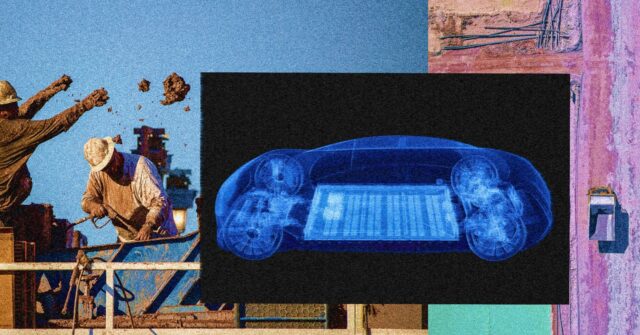“[BYD’s] disclosures show a serious lack of transparency on human rights diligence in its battery supply chains,” said Amnesty’s Callamard. “Other low-scoring firms, such as Hyundai and Mitsubishi, lack the necessary depth and information about implementation across key human rights due diligence areas.”
“The commitments these companies report on are often vague and provide little evidence of meaningful action, showing they have a long way to go to meet international standards,” Callamard said.
While companies such as Renault and GM have stated their commitment to human rights due diligence, and rank higher than some of the lowest-scoring companies, they still provide limited evidence of fully integrating these commitments into their supply chain operations, with scant information about their risk assessments, according to the Recharge for Rights report.
BMW, Mercedes-Benz, Tesla, and VW have “more to do” to “identify actual and potential human rights risks across [their] supply chains,” said Amnesty, but the fact that they achieved a “moderate” score “should stand as a model for the others to follow,” stated Recharge for Rights.
Auto Compliance
Six of the 13 companies featured in the Recharge for Rights report responded to WIRED, stressing that they take the issues raised by Amnesty seriously. BMW, GM, Nissan, Mitsubishi, and Hyundai all sent statements regarding their poor scoring.
Mitsubishi said Amnesty’s report was based on information dating from 2023, “but we have initiated numerous efforts since then.” These measures, said the Japanese company, include using AI to “analyze potential connections with suppliers related to conflict minerals and other issues.”
Nissan provided WIRED with its Sustainability Data Book, which included minerals-sourcing best practices, adding that the company respected the “human rights of all stakeholders” and complied with “applicable laws, regulations, and standards.”
“Our supply chain compliance program sets out the highest standards,” stated Hyundai, adding it was “committed to a sustainable, ethical supply chain that upholds human rights, environmental protection, and safety.”
“We have been committed to respecting human rights for years, even beyond legal requirements,” Mercedes-Benz stated, highlighting that it “ranks the best among the evaluated automobile manufacturers” in Amnesty’s report.
BMW pointed WIRED to the group’s compliance management documents. General Motors said it was committed to “sustainable and responsible sourcing of goods and services.” A Ford spokesperson offered to be interviewed on a Zoom-style call but, at the agreed time, did not show up.
History of Criticism
Digging up minerals can be exceedingly lucrative for mining companies, but people who live in proximity to these resources rarely, if ever, benefit. For some Brazilian communities, this changed last month following a court case that will be keenly studied by the industries that rely on such minerals, including the automotive sector.
The largest class action in English history was filed in London on October 21, a claim involving 700,000 individuals seeking redress after a devastating tailings dam rupture in 2015 on the Doce River in southeastern Brazil. Nine years later, the Doce River—which the Krenak Indigenous people revere as a deity—is still poisoned with the iron ore mine’s deluge-related toxins.






